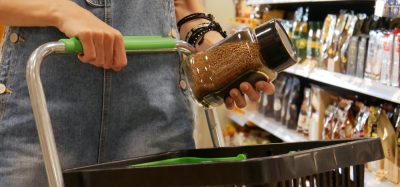Fifth of households struggle with healthy food costs, MPs warn
Posted: 28 July 2023 | Grace Galler | No comments yet
A fifth of UK households are “struggling to get access to good quality food at reasonable prices”, meaning they opt for unhealthy alternatives, according to MPs.


Concerned that 40 percent of the UK population will be obese by 2025, a new report by UK Members of Parliament (MPs) has found that a fifth (20 percent) of UK households are “struggling to get access to good quality food at reasonable prices”, causing them to turn to unhealthy, high-calorie alternatives.
The report is titled “Food Security” and was written by the Environment, Food and Rural Affairs (EFRA) Committee. It delves into the availability and affordability of food from the household to the national levels.
EFRA lay some of the blame of the increase in food insecurity on the fact consumer price inflation has risen to its highest rate in over 40 years. However, the report calls on the government to explore the options and affordability of extending the provision of free school meals and to break what it calls the ‘junk food cycle’ that the UK suffers from.
One of the main problems highlighted in the report is the retailers promoting relatively low-cost food which is high in calories but low in other nutrients. It claims that this has led to “many poorer people in the UK [becoming] obese”.
“This cycle starts with the tendency for people to enjoy ‘tasty’ salty or sweet foods – a demand which is then satisfied by supermarkets and fast-food outlets. This plentiful supply in turn creates more opportunities for people to buy food that is relatively bad for them,” explained EFRA.
According to the report, based in current trends, treatment of Type 2 diabetes alone that will stem from this will cost the NHS “more than it currently spends on treating all cancers” by 2035.
Going forward, the Committee have urged the UK Government to review whether income support packages for poorer members of society were sufficient in stopping people needing to turn to food banks. To keep the population up to date, EFRA has said that this review should be published within six months of the publication of the Committee’s report.
The report also draws upon the impact made by Henry Dimbleby, a previous independent food advisor to the Government that resigned in March 2023. It said that “while Dimbleby’s National Food Strategy, an Independent Review that made the links between the types of food we eat and the health of the nation, the government’s subsequent Food Strategy document published in June 2022 ‘did not cover the topic at all or set out any actions to break the junk food cycle’”.
Taking a look at some of the broader factors that influence food accessibility and production in the UK, EFRA has found that only 54 percent of the food eaten in the UK is home-grown or home reared.
In addition, EFRA called for the need for a sea change in the UK Government’s attitude to food security. Taking a quote from Mark Spencer MP, Minister of State for Food, Farming and Fisheries, when he claimed “’household affordability of, and access to, food’ is not part of the definition of food security”, with the Committee responding “We disagree”.
Commenting on the findings of the report, Sir Robert Goodwill, Chair of the Environment, Food and Rural Affairs Committee, said: “Food security matters to us all. It is vital to farmers; it is vital to other food producers. And of course, it is vital for every citizen up and down the land to have a square meal at a reasonable price. But surprisingly, the government does not appear to be taking this very basic matter anywhere near seriously enough.
“This report is calling, through its various recommendations, for much more attention to be paid to the guaranteed supply of good quality food – at prices which suit both producers and consumers. I know that is not an easy balance to strike. But that’s what government is for. It must read the report carefully and act accordingly,” Goodwill concluded.
Related topics
Food Security, Health & Nutrition, Regulation & Legislation, Research & development, retail, The consumer
Related organisations
Environment, Food and Rural Affairs (EFRA) Committee., UK Government









